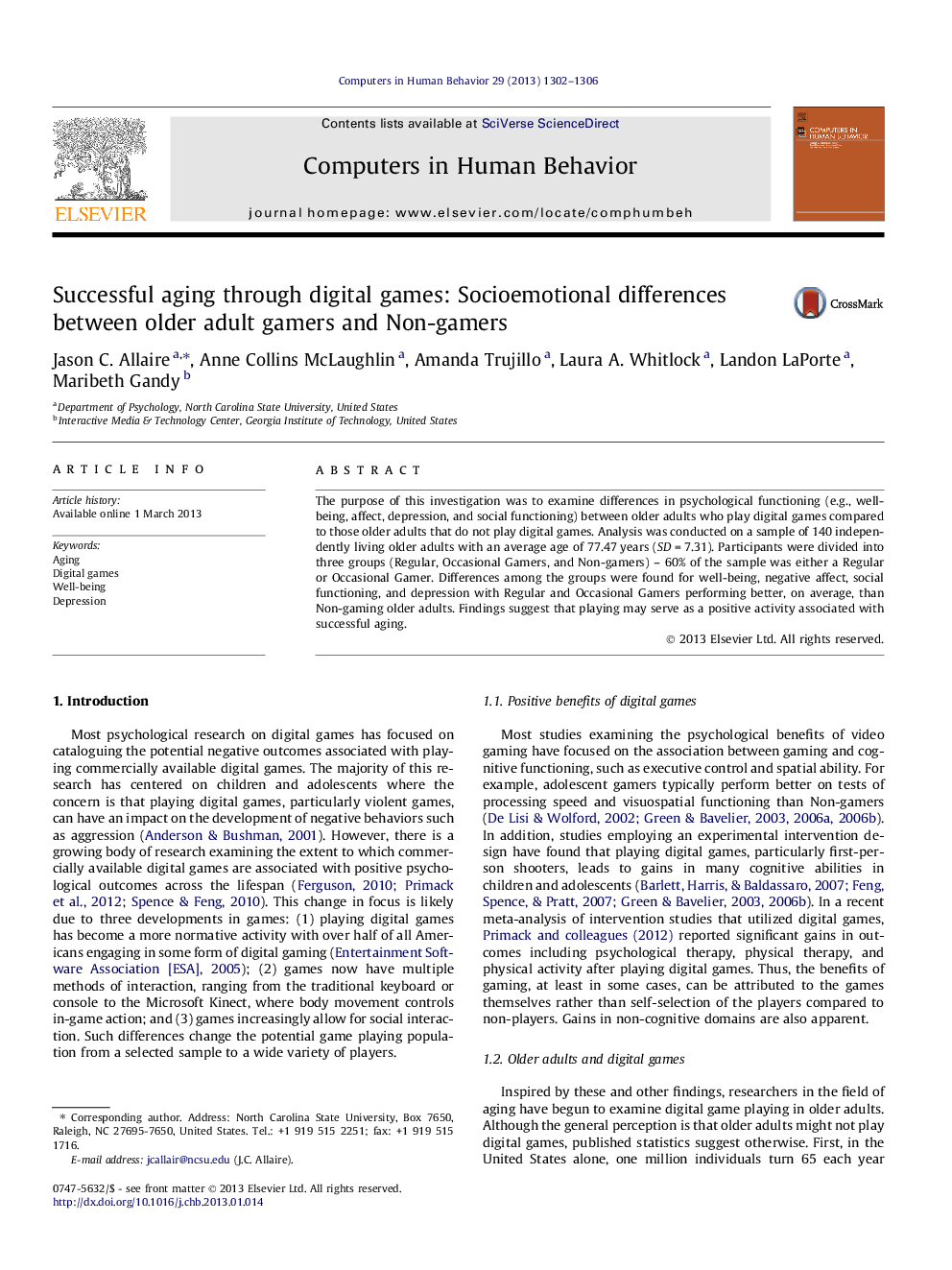| Article ID | Journal | Published Year | Pages | File Type |
|---|---|---|---|---|
| 351026 | Computers in Human Behavior | 2013 | 5 Pages |
The purpose of this investigation was to examine differences in psychological functioning (e.g., well-being, affect, depression, and social functioning) between older adults who play digital games compared to those older adults that do not play digital games. Analysis was conducted on a sample of 140 independently living older adults with an average age of 77.47 years (SD = 7.31). Participants were divided into three groups (Regular, Occasional Gamers, and Non-gamers) – 60% of the sample was either a Regular or Occasional Gamer. Differences among the groups were found for well-being, negative affect, social functioning, and depression with Regular and Occasional Gamers performing better, on average, than Non-gaming older adults. Findings suggest that playing may serve as a positive activity associated with successful aging.
Graphical abstractFigure optionsDownload full-size imageDownload as PowerPoint slideHighlights► Sixty percent of the older adult sample was either a Regular or Occasional Gamer. ► Gaming was not associated with age or education level. ► Gamers performed better than Non-gamers on measures of well-being, negative affect, and depression.
